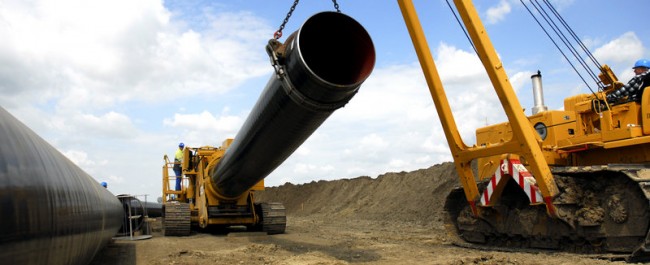Obama rejects Keystone XL construction application
“The State Department has decided that the Keystone XL pipeline will not serve the national interests of the United States. I agree with that decision,” Obama said.
“The pipeline would not make a meaningful long-term contribution to our economy. So, if Congress is serious about wanting to create jobs, this was not the way to do it,” the president said, adding that the pipeline would not lower gas prices for American consumers.
The White House’s announcement comes on the heels of the State Department’s refusal of a request from TransCanada to suspend its Keystone XL pipeline cross-border permit application review just days after receiving it (OGJ Online, Nov. 5, 2015).
In response to Obama’s announcement, TransCanada released a statement saying it “will review all of its options in light of a permit denial” for the pipeline system. The options, TransCanada said, would include filing a new application to receive a Presidential Permit for a cross-border crude oil pipeline from Canada to the US.
“TransCanada and its shippers remain absolutely committed to building this important energy infrastructure project,” said Russ Girling, TransCanada’s president and chief executive officer.
Girling said his company believes that a pipeline will eventually be built “as this is the safest, most economically efficient means of getting crude oil to market.”
Industry responses
Industry responses to Obama’s decision were not unexpectedly critical.
“Today’s decision on the northern leg of the Keystone XL pipeline will have no material impact on greenhouse gasemissions,” said Kevin Birn, director, IHS Energy. “IHS research has consistently shown that oil sands production does not hinge on any one infrastructure project and alternative projects and rail exist. IHS continues to expect over 800,000 b/d of new supply to come online by 2020 from existing projects relative to 2014. This will raise total oil sands production to 3 million b/d in 2020,” Birn said.
Jim Burkhard, IHS Energy vice-president, added, “The Keystone XL decision does not mean less oil sands overall but it may complicate oil sands access to the US Gulf Coast where there is substantial refining capacity for heavy types of crude. The number one beneficiary of all this will be Venezuela and other suppliers of heavy oil that ship to the Gulf Coast by tanker. Venezuela heavy crude is similar to oil sands in both quality and greenhouse gas intensity and will continue to be consumed by US refineries in the absence of access to Canadian crude oil.”
Meanwhile, in a statement released shortly after Obama’s comments, American Petroleum Institute Pres. and Chief Executive Officer Jack Gerard said that the president’s rejection of the Keystone XL pipeline is “a clear example of politics coming before the interests of US workers and consumers.”
Gerard said, “It’s ironic that the administration would strike a deal to allow Iranian crude onto the global market while refusing to give our closest ally, Canada, access to US refineries. This decision will cost thousands of jobs and is an assault to American workers. It’s politics at its worst.”


